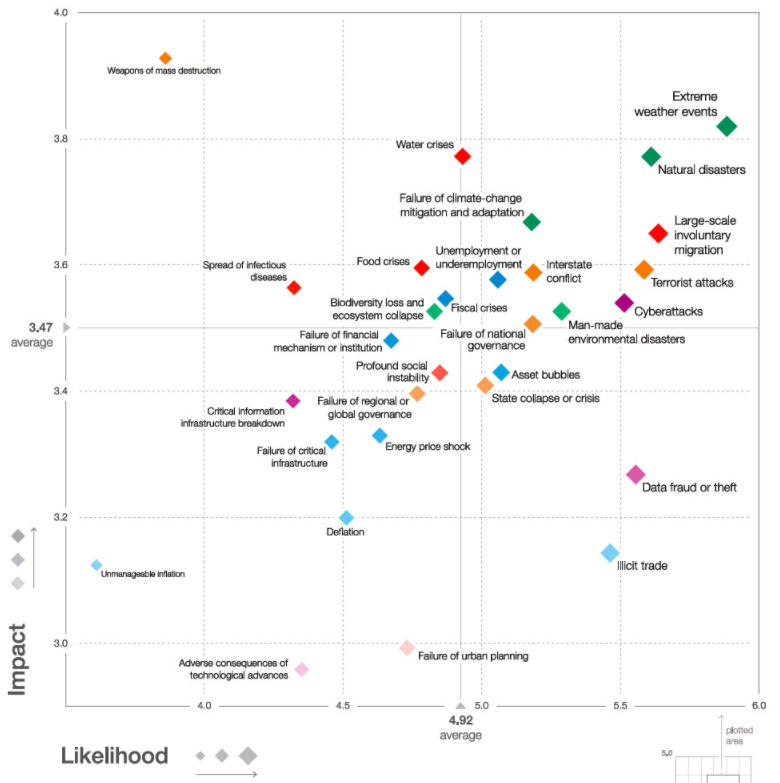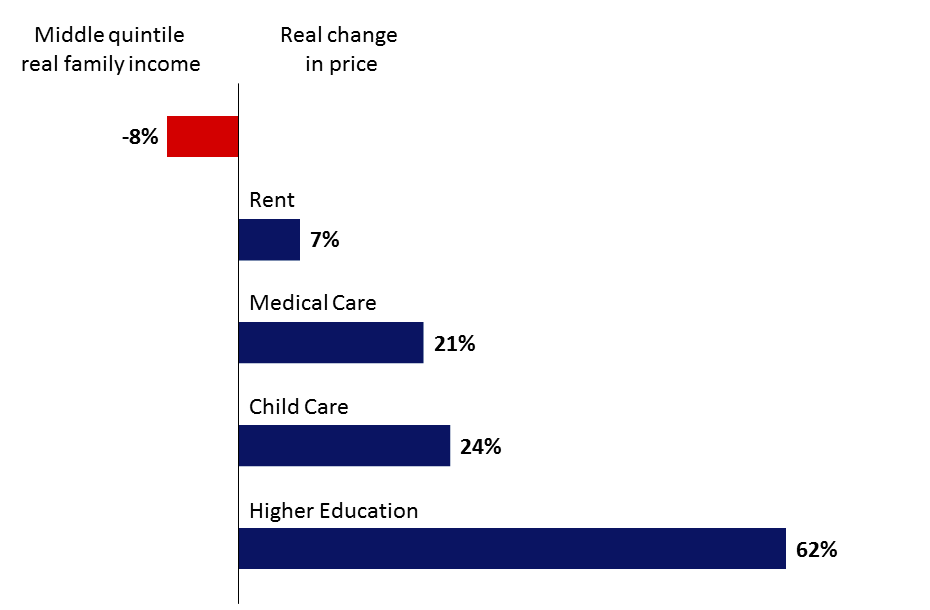“The world around us is changing at unprecedented speed. At this tipping point, our traditional concepts of society, meaningful employment and the nation state are challenged, and many understandably feel insecure and threatened.”
Klaus Schwab, Founder and Executive Chairman of the World Economic Forum
The World Economic Forum 2017 has now officially closed its doors after 3,000 business leaders, 40 heads of state and 14 Nobel Laureates gathered to establish the measures necessary to improve the state of the world. While many of the world’s most significant challenges remain the same, ranging from global resource security, climate change, rising inequality and global economic growth, this year is lining up to be profoundly different. The socioeconomic system that reigned supreme in recent memory is being questioned in a very real way.
WEF Global Risks
World Economic Forum Global Risk Report (2017)
Over the past decade Davos has represented globalization and international cooperation at its very finest. Yet over the past twelve months the world has seen a drastic return to a more protectionist and insular political system with the United Kingdom leaving the European Union and President Donald Trump taking office in the United States. The rest of the year will likely see many other countries around the world follow suit.
The reason behind this shift is simple. For many, the social, political and economic elites attending the WEF are part of the problem. Income growth for the middle classes of the developed world has remained stagnant over the past 20 years, with many people losing their jobs and feeling left behind by technological innovation and global market capitalism.
The Middle Class Squeeze
Source: Center for American Progress (2014)
Surprisingly, the World Bank reported last year that the global economy is firmly on the right track. The number of people living in poverty fell to 10.7% of the world’s population in 2013 from 35% in 1990. This even happened at a time when the global population expanded by almost two billion people. Prospects have in fact waned for many of the middle class in the developed world. Since the Global Financial Crisis, economic uncertainty has increased for many across North America and Europe. Wealth disparity across these regions has widened. No wonder a meeting of the political and economic 1% to drive policy failed to resonate so well among the masses this year.
Despite the current macroeconomic climate, the issues discussed during the World Economic Forum deserve attention. Davos 2017 saw the formation of a new fund that will raise $400 million towards deforestation projects, a new initiative to provide clean water to 3.5 million people, a Coalition for Epidemic Preparedness Innovations and even a plan to increase the global reuse of recycling from 14% to 70% among many others.
The central question for global leaders was how to be responsive and responsible in this new macroeconomic climate. Leaders must be understanding of the demands of their people, while also providing a vision and way forward so a better future can be perceived and realized. We have the capacity to build a new economic system that works for all, one that is based on responsible and sustainable growth to create long-term value. One solution is to create a sustainable and equitable economic system that leaves no one behind. A report by the Business and Sustainable Development Council has found that there could be return of as much as $12 trillion if the world’s sustainability goals are backed by big business and international governments.

